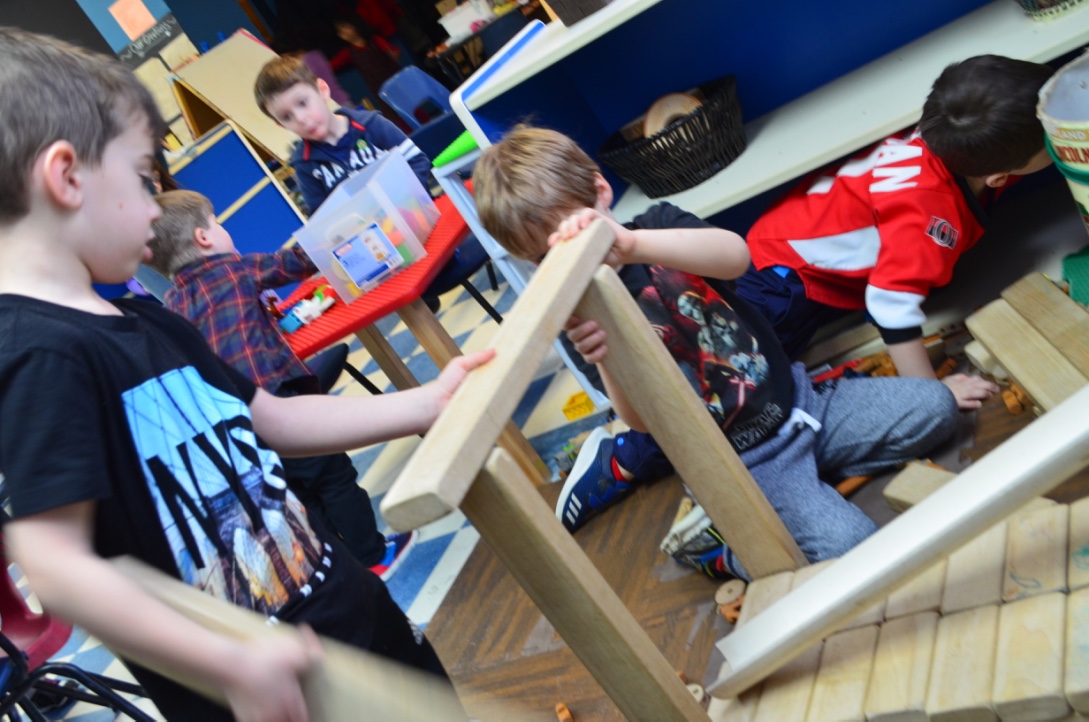Allegro adopted the use of Emergent Curriculum after undergoing the pilot project, Partnerships for Inclusion in 2003.
Emergent Curriculum is one of planning the focus of learning or what happens in the classroom, as a result of interaction between educators and children, with both contributing ideas and reacting to them to build on appealing and worthwhile units of study. The values and concerns of all adults, (educators and families) involved help the classroom culture evolve. This arises naturally from adult-child interactions and situations that allow for “teachable moments.”
Through self-directed play, they have the freedom to investigate the various learning centres and activities . Play-based learning allows for manipulating objects, acting out roles or experimenting with different materials enabling new connections to prior experiences, investigations, problem solving and critical thinking.
As facilitators of play, educators are there to support development as well as the framework outcomes for: well-being, language and communication, discovery and invention and personal and social responsibility. These outcomes can be found on our classroom parent boards.
Young children learn by doing, touching, experimenting, choosing, talking and negotiating.



